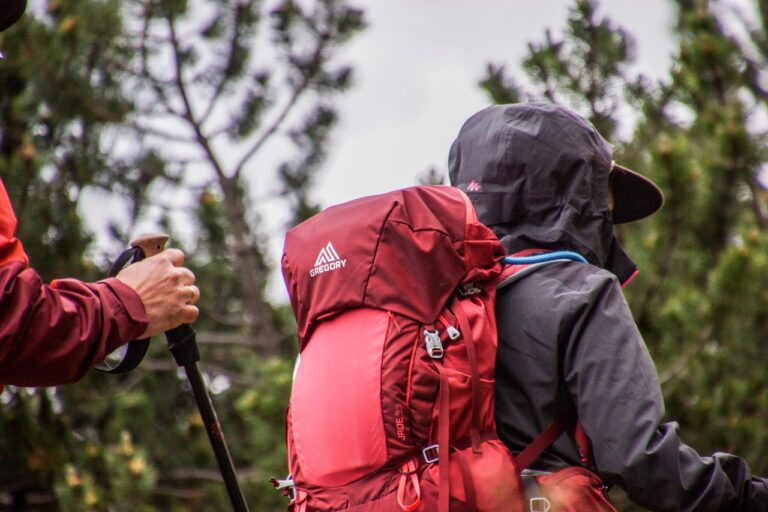
Only backpacking survival skills? So why not? Skills, rather than gear, replace weight for ultralight backpackers like me. It also feels good to know you can deal with whatever comes up if you spend any time in the great outdoors.
Staying warm and dry, hydrated, uninjured, and finding your way out of the wilderness are all part of survival. Of course, eating is nice, but unnecessary if the situation is only temporary. Here are some simple survival skills you can learn.
Easy Backpacking Survival Skills
- Gather dried moss or milkweed fuzz in your pocket while walking so you have dry tinder in case it rains later. Cattail fuzz also works well, and you can try different materials
- It is a blueberry, strawberry, or raspberry if it looks and tastes like one. There is no berry in North America that resembles a blueberry, strawberry, or raspberry and can cause harm with just one bite. Take a taste, and if it doesn’t taste right, spit it out completely.
- To keep warm in an emergency, make a pile of dry leaves and dead grass. In below-freezing temperatures, I slept warmly without a blanket in a pile of dry grass.
- Place a stick upright in the ground and mark the tip of the shadow with another stick. Mark it again in fifteen minutes. If you draw a line between the first and second marks, it will point east. When your compass is lost, techniques like this can come in handy.
- In the summer, clouds form in the Rocky Mountains just before afternoon storms. In Colorado, hikers are frequently killed by lightning. Before a storm, birds often fly lower. Learning to read the sky and animal behavior can keep you out of trouble.
- The most common and leading cause of death in the wilderness is hypothermia, and getting wet. When you suspect rain is on the way, make a habit of looking for ledges or large fir trees to shelter under. One of the most important survival skills is the ability to stay dry.
- Sleep with your head slightly downhill to keep warm. It takes some getting used to, but it does the job.
- Get in the habit of filling water bottles when available and you won’t have as much trouble with long dry stretches of trail. Consume the last of your water before filling the bottles.
- Break a “blister” on the trunk of a small spruce or fir tree and use the sap that oozes out as an antiseptic dressing for minor cuts. It can also start a fire and will burn if wet.
- Even when wet, the bark of a white birch tree will usually light. In an emergency, you can also use it as a paper substitute if you need to leave a note.
In Conclusion
The survival skills listed above are just a few examples. There are plenty more, and they can make backpacking not only safer but also more enjoyable. Why not put one or two of these survival skills to use?
Click here to read our reviews for the top survival and outdoor gear

